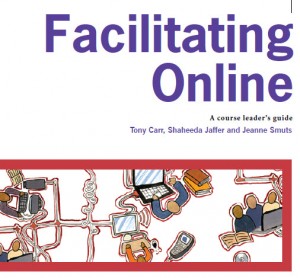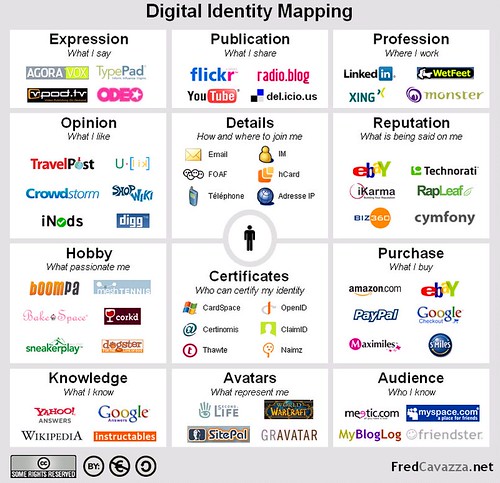 I’m thrilled to learn that the great work of Tony Carr and his colleagues at the Centre for Educational Technology, University of Cape Town in South Africa is up and online. They recently completed the Facilitating Online: a course leaders guide (PDF here.). A few years ago I said to Tony that I really had not done a good job keeping my resources up to date and I wanted to “open source” them but in a way where others would build upon and improve them. Tony took me at my word and grabbed my stuff. He connected with the All Things in Moderation folks in the UK for their frameworks. Then with Shaheeda Jaffer and Jeanne Smuts, they created the guide. Now it is up and available to all of us. Here are the details:
I’m thrilled to learn that the great work of Tony Carr and his colleagues at the Centre for Educational Technology, University of Cape Town in South Africa is up and online. They recently completed the Facilitating Online: a course leaders guide (PDF here.). A few years ago I said to Tony that I really had not done a good job keeping my resources up to date and I wanted to “open source” them but in a way where others would build upon and improve them. Tony took me at my word and grabbed my stuff. He connected with the All Things in Moderation folks in the UK for their frameworks. Then with Shaheeda Jaffer and Jeanne Smuts, they created the guide. Now it is up and available to all of us. Here are the details:
Facilitating Online is a course intended for training educators as online facilitators of fully online and mixed mode courses. The Centre for Educational Technology (CET) produced a Course Leader’s Guide as an Open Educational Resource to assist educators and trainers who wish to implement a course on online facilitation within their institution or across several institutions. The guide contains the course model, week-by-week learning activities, general guidance to the course leader on how to implement and customise the course and specific guidelines on each learning activity.
See Facilitating Online: A guide for course leaders for a pdf version of the course manual as well the specimen course site.
Congratulations Tony. And thanks for keeping it in the accessible, public domain as well. That matters!

 This spring I decided to try and get back into a regular blogging practice. You may have noticed this in February, March and part of April. Then I fell back off the wagon when sunny spring weather lured me outdoors for garden projects. I have no regrets.
This spring I decided to try and get back into a regular blogging practice. You may have noticed this in February, March and part of April. Then I fell back off the wagon when sunny spring weather lured me outdoors for garden projects. I have no regrets. My friend and colleague, Shirley Williams, pointed me to a great resource on digital identity (DI) that she and her colleagues created for their students at Reading University in the UK. It is called “
My friend and colleague, Shirley Williams, pointed me to a great resource on digital identity (DI) that she and her colleagues created for their students at Reading University in the UK. It is called “